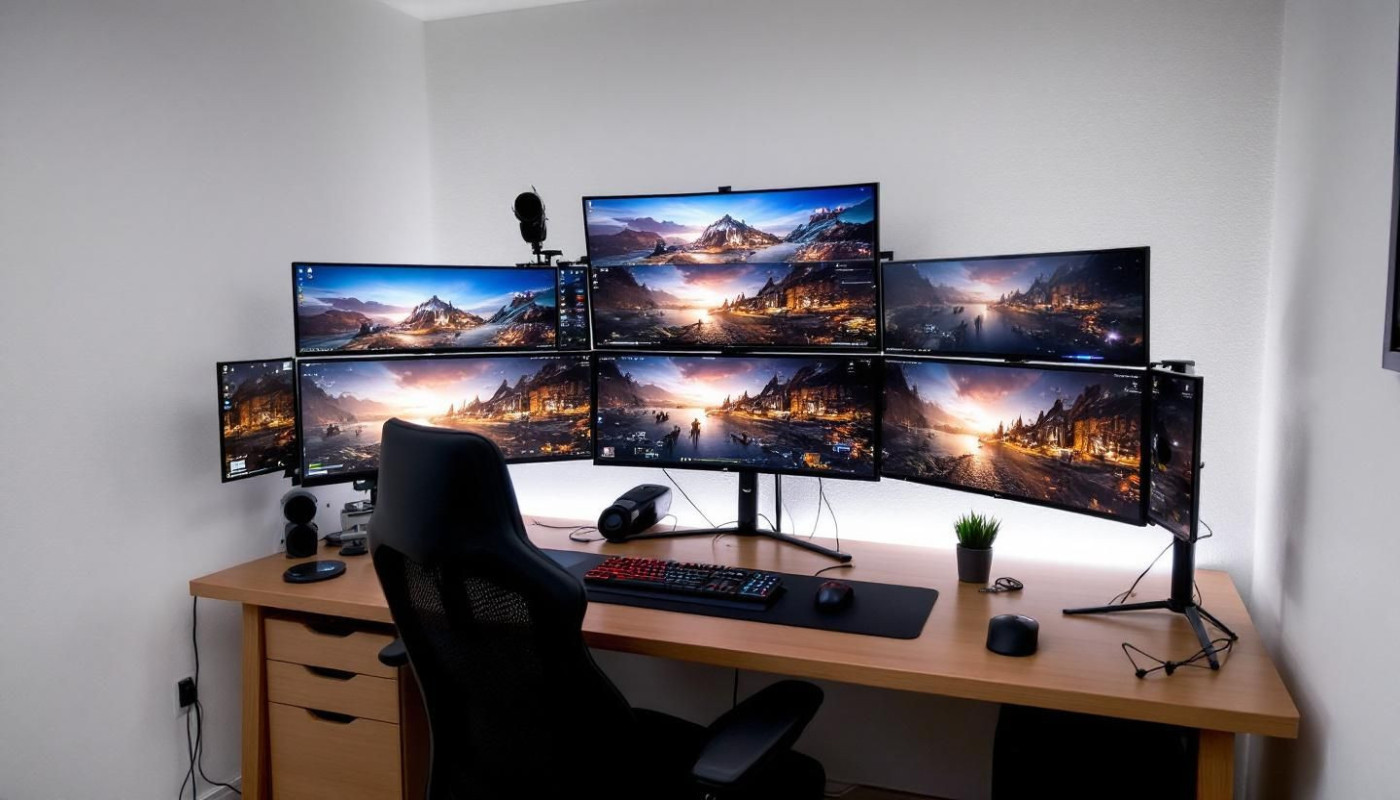Table of contents
The allure of card games in online casinos is a testament to how classic entertainment can be seamlessly adapted to the digital realm. From the tactile feel of cards shuffling to the strategic gameplay that has captivated minds for centuries, these games have undergone a significant transformation as they transitioned online. The evolution of card games within online platforms is a fascinating journey that speaks volumes about innovation, technology, and cultural adaptation. As these games shifted from the green felt tables to the virtual world, they brought along a blend of tradition and modern convenience. This exploration will delve into the intricate ways in which card games have been re-imagined for the online casino audience, shedding light on the technological advancements that have enabled this shift and the impact it has had on gaming enthusiasts around the globe. Prepare to be dealt into the world of virtual shuffles and digital bets, as we explore the evolution of card games in online casinos.
The Roots and Digital Rebirth of Card Games
The storied past of traditional card games stretches back centuries, serving not merely as a pastime but as a cultural cornerstone with the power to bring people together. These games have witnessed the ebbs and flows of empires and the changing tides of social and recreational norms. Yet, with the advent of the internet, an invigorating transformation occurred. The online transition of these beloved games onto digital platforms has been nothing short of revolutionary.
As the digital age dawned, game developers faced the imposing task of translating the nuanced experiences of classic card games into a virtual format. There was skepticism at first—both from developers wary of preserving the integrity of the games and from players attached to the tactile sensation of shuffling and dealing physical cards. The concept of multiplayer online platforms was at its infancy, and questions about replicating the social interaction of a card table loomed large.
In spite of these challenges, the allure of accessibility and the burgeoning popularity of digital interaction spurred a meticulous development process. The result was a seamless integration of traditional card games into the online world, where players could engage with their favorite games anytime, anywhere. Player acceptance was not instantaneous, yet as features improved—allowing for real-time play, chat functions, and even live dealers—the appeal became undeniable. The convenience of online play, coupled with the ability to connect with a global community of players, ultimately won over even the most traditional card game enthusiasts.
Today, the digital rebirth of card games has secured their place in the modern era, ensuring their survival and continued evolution. While the atmosphere of smoke-filled rooms and the clink of poker chips may have diminished, the essence of strategy, skill, and luck remains, now immortalized within the digital realm.
Technological Innovations Powering Online Card Games
The digital adaptation of card games has been significantly propelled by a series of technological breakthroughs, each playing a pivotal role in the emergence of online casinos. Central to these advancements is the development of sophisticated game engines, which serve as the foundation for interactive gameplay. They ensure that classic card games such as poker, blackjack, and baccarat are seamlessly translated into digital formats with rules and mechanics that mirror their physical counterparts. Enhanced graphics have also been instrumental, providing a visually rich environment that rivals the experience of sitting at a felt table in a traditional casino. The immersive detail and realistic animations within these virtual card rooms are a testament to the graphical prowess afforded by modern technology.
Another key advancement in the realm of online card games is the implementation of secure payment systems. These systems provide players with a sense of safety and trust as they engage in real-money betting. State-of-the-art encryption and fraud detection methods ensure that financial transactions are protected, maintaining the integrity of both the players' funds and the casino's reputation. Perhaps one of the most critical components of online card gaming is the assurance of fair play, which is largely attributed to random number generation (RNG). RNG algorithms are the linchpins that guarantee each hand dealt and each shuffle of the deck is conducted with impartiality, mirroring the unpredictable nature of live card games and upholding the fairness that is paramount to the casino experience.
In this dynamic digital era, the realistic gaming experience offered by online card games is continually enhanced by these innovations, attracting a myriad of players who seek both the thrill of the gamble and the convenience of digital access. As technology marches forward, so too does the evolution of online card games, promising an ever-advancing landscape for enthusiasts and casual players alike.
The Social Aspect of Online Card Games
One of the transformative effects of online casinos on card games is the recreation of the social environment that traditional card-playing venues offer. In the past, the communal aspect of card games was considered difficult to replicate online. Yet, with advanced live streaming technology, players can now enjoy a more immersive experience that closely mirrors the dynamics of a physical table. Through the use of chat rooms, participants are able to engage in the banter and conversation that form the cornerstone of the social gaming sphere.
Live dealers play a pivotal role in nurturing this social environment. They interact with players in real-time, dealing cards, and conducting the games as they would in a land-based casino. This human element adds a layer of authenticity and connection that was previously missing from the digital realm. Furthermore, multiplayer options have opened up avenues for friends and strangers alike to compete against each other or work as a team, fostering a sense of camaraderie and competition akin to that found in traditional gaming settings.
The resulting communal gaming experience is a testament to the innovation of online platforms in bridging the gap between the physical and the virtual. It caters to the social cravings of players, who seek not just the thrill of the game, but also the warmth of human interaction. The seamless integration of social features into online card games signifies a new era in casino gaming, where the emphasis is equally placed on both the game and the engaging social experiences it can provide.
The Role of Mobile Devices in the Popularity of Online Card Games
The advent of mobile gaming has had a significant impact on the ubiquity and accessibility of online card games. The convenience brought by smartphones and tablets has allowed enthusiasts to engage in their preferred card games at any time and from any location, resulting in a marked surge in their popularity. This transformation is largely attributable to advancements in app development and the implementation of responsive design, ensuring that gaming platforms adapt seamlessly to various screen sizes and resolutions. The pivotal technical term in this evolution is "cross-platform compatibility," which ensures a smooth and uniform gaming experience across different devices and operating systems. As mobile devices continue to dominate our daily lives, their role in the expansion of online card games cannot be overstated, underpinning the sector's growth and the broader trend towards digital leisure activities. As an illustration of the latest trends in online gaming platforms, ninecasino.ελ has embraced these technological advancements, ensuring an optimal gaming experience for all users.
Future Trends in Online Card Game Development
The landscape of online card games is poised for a transformation bolstered by emerging technologies that promise to revolutionize the player experience. Virtual reality (VR) and augmented reality (AR) stand at the forefront of this evolution, set to create gaming realms of unprecedented immersion. Imagine donning a VR headset to enter a high-stakes poker tournament, feeling as though you're sitting at a felted table, engaging with lifelike avatars of opponents from around the globe. AR, on the other hand, could overlay your real-world surroundings with interactive gaming elements, making the physical space a part of the game itself.
In tandem with VR and AR, AI personalization is expected to play a pivotal role in tailoring the gaming experience to individual preferences. Machine learning algorithms will analyze player behavior, skill levels, and preferred gaming styles to offer a bespoke gaming journey. This could mean personalized game recommendations, adaptive difficulty levels, and even AI opponents that learn and evolve to match your playing style. The synthesis of these technologies is set to create interactive gaming environments that are not only engaging but also responsive to the nuances of human behavior, changing the way we play and connect within the virtual spectrum of card games.
Similar

Tips For Choosing The Best Welcome Bonuses In Online Gaming

Improving Player Retention Strategies In Online Casinos

Exploring The Drawbacks Of Playing At Non-Local Casinos

Exploring The Appeal Of International Gaming Sites For UK Players

Understanding The Risk Versus Reward In Quick Cash-out Games

Exploring The Benefits Of Online Lottery: How It Changes Lives

The Psychological Benefits Of Viewing Gambling As Entertainment

Exploring The Latest Trends In Sustainable Fashion And Lifestyle

Exploring The Thrills Of Road Crossing Games With High Stakes

Effective Budget Management Strategies For Casino Games

Frequently Asked Questions About The Newest Casino Gaming Sensation

Step-by-Step Process To Participate In Virtual Chicken Games

Exploring The Popularity Of Online Casino Games In Turkey

Key Objectives Of Popular Online Arcade Games

How Advanced Virtual Reality Is Transforming Interactive Gaming And Betting Platforms

Exploring The Advantages And Drawbacks Of Online Casino Apps

Exploring Innovative Approaches To Modern Online Gaming Experiences

Exploring The Thrill Of New Casino Minigames: Strategies And Tips

A Comprehensive Guide To Navigating Online Casino Security Features

Exploring The Benefits Of Specialized Search Platforms For Entertainment Options

Understanding Slot Machine Volatility And RTP For Better Gameplay

Essential Tips For First-time Travelers To Japan

Exploring The Popularity Of Trending Online Money Games

Exploring The World Of Anime-Themed Online Casinos: Games And Bonuses

What To Know About Bonuses And Promotions In Online Gambling

The Impact Of Australian Culture On Online Gambling Habits

How To Maximize Your Bonuses When Playing Online Slots

How To Spot Fair Play Certifications On Online Gaming Sites

Exploring The Rise Of Low Deposit Casinos In 2024

The Evolution Of Card Games: A Historical Perspective

Forecasting The Titans Of 2023: Predicting The Top Game Development Companies And Their Winning Strategies

Understanding The Odds: Which Casino Games Offer The Best Chance Of Winning?

Exploring The Thrill Of Live Dealer Games In Online Casinos

Exploring The Popularity Surge Of Virtual Board Game Adaptations In Online Casinos

Maximizing Your Welcome Bonus: Essential Tips for Newcomers

